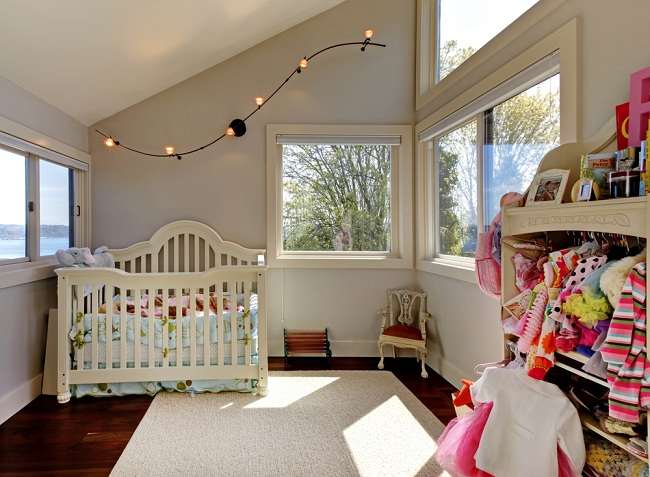Training a child to sleep alone is not easy. It may take weeks, even months, for the child to get used to sleeping alone in his room. Although it seems difficult, this must still be done in order to train the child's independence and maturity.
Most parents choose to sleep with their babies in the same room from birth. The reason is that they are always ready to take care of and breastfeed their baby at night. However, this habit can carry over until the child is old enough.

This of course is not good for children and parents. As they get older, children inevitably need to be taught to be independent. Parents also need time alone without children. Therefore, training children to sleep on their own needs to start early, even from the age of 6 months.
Various Method Mtrain Awant Tsleep Syourself
Here are some ways you can train your child to sleep alone in his room:
1. Get used to not sharing bed
At 1-4 months, your child should sleep in a separate bed from you to reduce the risk of sudden death (SIDS). But even after that, children need to be accustomed to having their own mattress or even their own room, using the Ferber method.
In addition to training their independence, this behavior is important to implement in order to build healthy sleep patterns in children.
2. Teach children to take a nap in their room
When the child already has his own room, often invite the child to play in his room while teaching him to take a nap alone. Daytime is a good time to practice sleeping alone because it tends to be less scary than a dark night.
3. Explain to children about the benefits of sleeping alone
Usually the child will cry when left sleeping alone in his room. This is very natural in the early days of training, but you should be able to explain the benefits of sleeping in your own room.
Tell him that he can sleep more comfortably and wake up refreshed. If he feels that you are mean or mean to him, tell him that you need to do this for his health and growth.
4. Reduce your presence in his bedroom
Accompanying a child before going to bed in his room is fine, as long as it's not too long, let alone to accompany him until he falls asleep. It is enough to accompany the child for a short time so that he gets used to sleeping alone in his room without the presence of his parents.
5. Do it consistently
If your child often sneaks up on you and begs you to sleep together, try to ignore it. Don't be lazy to walk him back to his bedroom so he understands it.
The first week was a tough one. However, if done consistently every day, the child will dare to sleep alone within 2-3 weeks. So, always consistently train your child to sleep alone until he feels comfortable in his room.
Tips to make your child feel at home sleeping alone
When the child already has the desire to sleep alone, that's when the child's room will begin to be effectively used. You can try the following steps to help your child feel comfortable and comfortable sleeping alone, for example:
- Provide decorations that the child likes in his room. If necessary, invite him to choose items or decorations in his room.
- Provide equipment that can make children sleep comfortably, such as blankets, bolsters, or dolls
- On the night when your child first tries out his bedroom, accompany him while reading a fairy tale or just chatting.
- Get in the habit of turning off the lights when he's asleep or using a night light in a color he likes and a dim light.
- Give a gift as a form of appreciation, so that the child always feels at home and comfortable sleeping alone in his room.
Actually, there is no age limit when a child should sleep in his own room. Even at birth, the separation of rooms can actually be done. The earlier it is done, the easier it is for you to teach your child to sleep in his room.
Most parents find it difficult to train their children because they are used to sleeping with company. If the habit has already happened, you have to be extra patient in practicing it.
If you feel that your child is not progressing to sleep on their own, always cries or complains, feels pressured to sleep, or even becomes sleep deprived, you should consult with your doctor so that the cause can be identified and appropriate treatment given.









